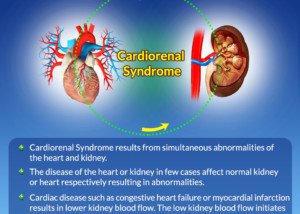
If a doctor didn’t order IV fluids for a patient with acute decompensated heart failure, this was probably a very smart move…
even though it would seem—from an intuitive standpoint—that IV fluids would be beneficial.
“Acute decompensated heart failure, or ADHF, often requires hospitalization to control symptoms – primarily shortness of breath (dyspnea) and fatigue,” says Beth Davidson, DNP, past president of the American Association of Heart Failure Nurses.
“These symptoms are due to ‘congestion’ or ‘volume overload’ – excess fluid in the vascular system and body.
“Typical treatments in the hospital setting include diuretics, which are medications to eliminate excess volume (fluid is excreted by kidneys in the form of urine).
“IV fluids could worsen symptoms by adding additional ‘fluid’ into an already ‘overloaded’ system.”
A Yale study (Journal of the American College of Cardiology) says that IV fluids could be potentially harmful to those hospitalized with acute decompensated heart failure.
Not the Same As Diuretics
The standard is to treat ADHF patients with diuretics (e.g., Lasix) intravenously to fight off excess fluid buildup (fluid overload) in the body and hence, manage symptoms like feeling short of breath.
The IV fluids that the study looked at, though, don’t involve diuresis. It is these fluids that the study says may worsen symptoms.
• The Yale researchers looked at data from more than 130,000 ADHF hospitalizations involving IV fluids in the first two days.
• Eleven percent of patients received intravenous fluid treatment along with diuresis.
• Patients who got both treatments were more likely to suffer negative consequences such as higher rates of intubation, critical care admission, kidney dialysis and mortality, when compared to patients given only diuresis.
• The study did not establish cause and effect, only an association, between IV fluids and higher incidence of adverse outcomes.
• But an associative relationship is nevertheless concerning and calls for more studies.
“Making healthy lifestyle changes can help with managing or reducing the risk of developing HF,” says Davidson.
“Talk with your health care provider prior to making lifestyle changes.
“These changes may include losing or maintaining a healthy weight, eating a heart-healthy diet, being physically active, managing stress, getting enough rest – as well as quitting smoking and heavy alcohol use.”

 Beth Davidson
Beth Davidson
























